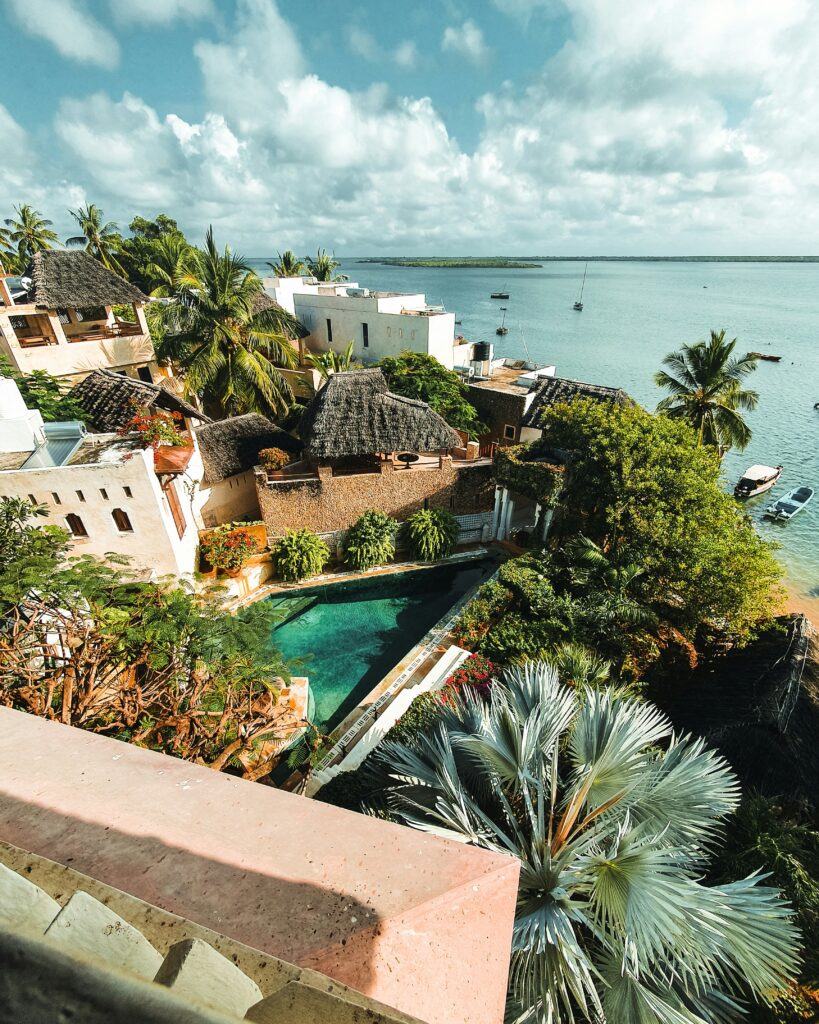Nestled along Kenya’s northern coast, Lamu Island is a timeless destination rich in history, culture, and natural beauty. This UNESCO World Heritage Site is one of East Africa’s oldest Swahili settlements, where centuries-old traditions blend seamlessly with the relaxed pace of island life. The car-free streets of Lamu Old Town, lined with coral stone houses, intricately carved doors, and bustling markets, transport visitors back to an era of maritime trade and cultural exchange.
Beyond its historic allure, Lamu boasts stunning beaches and serene waters perfect for relaxation. Shela Beach, with its powdery sands and turquoise waters, is an idyllic escape, while the traditional dhow boats dotting the ocean offer a unique way to explore the coastline. Whether it’s indulging in Swahili delicacies, learning about local craftsmanship, or soaking in breathtaking sunsets, Lamu provides a perfect blend of culture and tranquility.
Key Features
– Historic Lamu Old Town
– Pristine beaches on Shela Island
– Swahili cuisine and culture
– Dhow sailing experiences
Best Time to Visit
– December–March (sunny and dry)
– July–September (cool and breezy)
Activities
– Historical tours of Lamu Old Town
– Relaxing on Shela Beach
– Traditional dhow sailing
– Exploring mangroves by boat
– Swahili cooking classes
Getting There
– Flights from Nairobi or Mombasa to Lamu Airport
– Boat transfer from the mainland
Recommended Stay
3–4 nights
– 2 days exploring Lamu Town and Shela Village
– 1–2 days for beach relaxation and dhow cruises
Travel is the movement of people between relatively distant geographical locations, and can involve travel by foot, bicycle, automobile, train, boat, bus, airplane, or other means, with or without luggage, and can be one way or round trip. Travel can also include relatively short stays between successive movements.
The origin of the word "travel" is most likely lost to history. The term "travel" may originate from the Old French word travail, which means ‘work’. According to the Merriam Webster dictionary, the first known use of the word travel was in the 14th century.
It also states that the word comes from Middle English travailen, travelen (which means to torment, labor, strive, journey) and earlier from Old French travailler (which means to work strenuously, toil). In English we still occasionally use the words "travail", which means struggle. According to Simon Winchester in his book The Best Travelers’ Tales (2004), the words "travel" and "travail" both share an even more ancient root: a Roman instrument of torture called the tripalium (in Latin it means "three stakes", as in to impale).













Write a Review